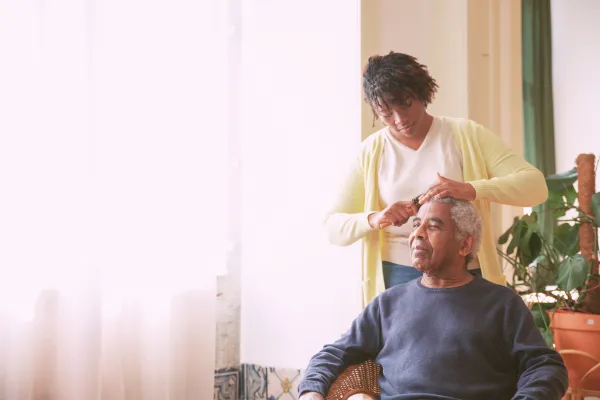
Can They Still Do This? A Caregiver’s Guide to Balancing Abilities and Safety in Dementia Care
"Can they still do this?"
That one question is at the heart of dementia caregiving.
Whether it's getting dressed, walking across the room, or making a sandwich, you find yourself wondering: Should I help? Should I wait? What if I let them do it and something goes wrong?
You are not overthinking. You are not being controlling. You are simply trying to do what’s best—and that takes thought, care, and sometimes, a little clarity.
This blog will help you:
Understand the hidden meaning behind behaviors
Apply a simple safety framework to caregiving decisions
Know what to do when abilities change
Behavior Is Communication
People with dementia often struggle to say what they need—but their behavior tells a story.
If your loved one resists help, insists they can still do something, or seems unusually withdrawn, ask yourself:
Are they trying to hold onto independence?
Are they embarrassed or confused about needing help?
Are they unaware of their actual limitations?
Sometimes a fall, a missed step, or an argument isn’t just a crisis—it’s a message.
Behavior is data. You don’t have to wait for words to know what’s changing.
Use the "Safety + Support" Framework
Instead of guessing or feeling guilty, use this 3-step reflection tool:
Is it safe?
Are they distressed?
Can I support them with it instead of doing it for them?
Here’s how it might look:
Dressing: Maybe they can still pick their clothes but need help with buttons.
Cooking: Maybe they can prep vegetables but shouldn’t use the stove unsupervised.
Walking: Maybe they can walk, but only with a walker or when someone is nearby.
You don’t have to choose between full independence and full takeover. Support exists on a spectrum.
What If Something Changes?
Caregiving is a moving target.
What your loved one can do this month might not work next month. That doesn’t mean you failed. It means dementia is progressing—and you’re adapting.
Re-evaluating is not a sign of failure. It’s a sign of attentiveness.
You’re not taking away their dignity. You’re building a bridge between what’s still possible and what needs support.
Final Thoughts
Being a caregiver doesn’t mean having all the answers. It means watching closely, responding with love, and being willing to pivot.
If you’ve been asking, "Can they still do this?" all day long—you're doing your job.
And if you need help figuring it out, you don't have to go it alone.
Others may not see it—but I do. And I’m here walking this with you.
I’m here sharing for you while you are caring for them.
🫂 Join the Conversation:
Need a community where you can ask for help and get real support?
Join my FREE Caregiver Support Group here
👉 Dementia Caregivers Success & Support Network.
📚 Resources to Support You:
Explore the Dementia Caregivers Academy Course for in-depth strategies and support.
PS.
This video is also posted on our YouTube Channel!

dementia caregiver help, how to support dementia independence, when to step in as a caregiver, dementia abilities vs limitations
